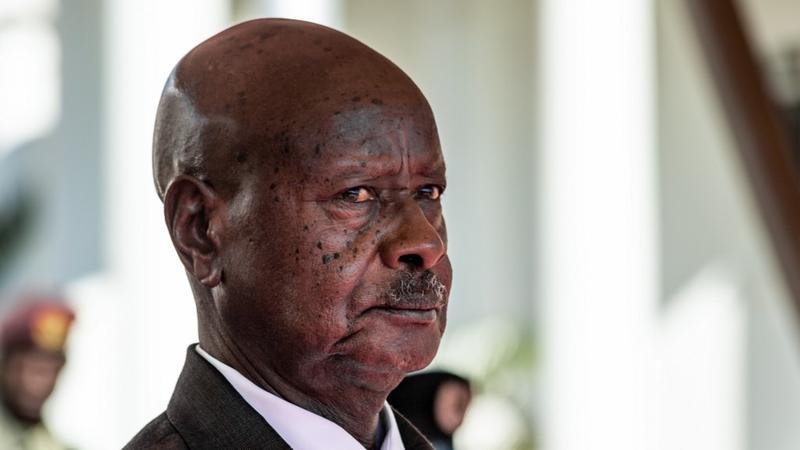Uganda’s ruling party has confirmed that President Yoweri Museveni, who has led the East African nation for nearly 40 years, will run for re-election in the country’s upcoming general elections scheduled for early 2026.
The announcement was made Tuesday by the National Resistance Movement (NRM), Museveni’s party, which stated on its official website that the 80-year-old president “seeks to retain the positions of NRM chairman and party presidential flag bearer in the 2026 elections.”
Museveni’s candidacy had long been anticipated. Once regarded as a reformist after taking power in 1986, Museveni has since been accused of consolidating power, suppressing dissent, and altering Uganda’s constitution to remove presidential age and term limits — paving the way for indefinite re-election bids.
Opposition Faces Growing Crackdown
The lead-up to Uganda’s next general election has already seen intensifying pressure on the opposition. Human rights organizations and political analysts have raised alarm over a wave of arrests, abductions, and harassment targeting opposition leaders and civil society activists.
Musician-turned-politician Robert Kyagulanyi, popularly known as Bobi Wine, has also declared his intention to contest the presidency in 2026. Wine, now one of Museveni’s most visible challengers, ran in the 2021 election but lost in a vote widely criticized for irregularities, voter intimidation, and violent crackdowns by security forces.
Since then, Wine has faced multiple arrests, while his political activities and rallies are often disrupted. Museveni’s son, General Muhoozi Kainerugaba, considered by some as his political heir, has publicly made hostile threats against Wine on social media — drawing condemnation from rights groups.
Political Repression and Human Rights Concerns
Ugandan authorities have repeatedly been accused of using the judicial system to target political opponents. In a notable case, Kizza Besigye, a former opposition leader and presidential candidate, was reportedly abducted in neighboring Kenya last year and returned to Uganda. He now faces treason charges carrying the death penalty.
International organizations and human rights defenders have denounced the charges. Besigye’s wife, Winnie Byanyima, who serves as Executive Director of UNAIDS, stated publicly that her husband’s detention was politically motivated.
“He is being criminalized because he has challenged [President Museveni] and put himself forward as a candidate in elections,” Byanyima said.
A Leader in Power Since 1986
Yoweri Museveni has ruled Uganda since 1986, making him one of Africa’s longest-serving heads of state. Under his leadership, Uganda initially experienced political stability and economic growth. However, critics argue that in recent years, his regime has become increasingly authoritarian, marked by tight media controls, election interference, and militarized policing.
While Museveni continues to command support in parts of the country — particularly from rural communities and segments of the military — growing numbers of young Ugandans have expressed frustration with the lack of political change, economic stagnation, and the suppression of democratic freedoms.
What Comes Next?
With general elections expected in early 2026, Uganda faces a familiar political landscape: an aging incumbent with a tight grip on power, a rising but embattled opposition, and heightened scrutiny from international observers.
Museveni’s re-election bid is likely to deepen existing political tensions and will again test the country’s democratic institutions. The international community will be watching closely to see whether Uganda allows for a free and fair electoral process — or whether the pattern of political repression continues.
